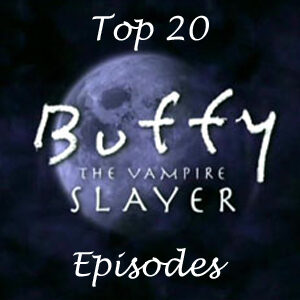The DCEU has notoriously been trying (and mostly failing) to catch up to the MCU, but the company is starting to figure things out. First came a lucky break when the MCU temporarily snubbed James Gunn, which allowed him to do the entertaining “The Suicide Squad” and TV’s “Peacemaker.”
Now DC brings aboard “Spider-Man: Homecoming” writers John Fracis Daley and Jonathan Goldstein to devise the story for “The Flash” (now on Max) — with Jody Harold also contributing, and “Birds of Prey’s” Christina Hodson writing an excellent screenplay.
Edging out “The Suicide Squad,” “The Flash” is the best of the first 14 DCEU films – a thrilling, vibrant adaptation of the 1980s “Flashpoint” comic storyline given emotional heart by star Ezra Miller. It also finds room for a surprising angle on another icon’s origin story, one absolute home run of a cameo and several base-hit cameos.
“The Flash” (2023)
Director: Andy Muschietti
Writers: Christina Hodson (screenplay); John Francis Daley, Jonathan Goldstein, Joby Harold (screen story)
Stars: Ezra Miller, Michael Keaton, Sasha Calle
Director Andy Muschietti (the “It” films) guides Miller through one of the best double-performances I’ve seen. I guess it’s done with old-fashioned technical savvy, with a stand-in (with his face hidden) and split screens. The interactions are utterly smooth as Miller plays Barry Allen/Flash A and Barry Allen/Flash B. He also plays a future tragic version of Flash B, in a grand finale set in a colorful limbo arena where the multiversal ramifications play out.
Doubly great performance
Flash A is a mature (or at least maturing) young man, while Flash B is impulsive and naïve, a few years younger in his slice of the multiverse. Helped by hairstyles, Miller makes each version distinct, yet he never overacts.
Miller’s Flash was introduced way back in 2016’s “Batman v Superman: Dawn of Justice,” and he was immediately saddled with “He’s no Grant Gustin” as the “Flash” TV series did its “Flashpoint” adaptation that same year.
Seven years later, Miller is allowed to show his acting chops in a big way, mixing two performances into an inside-out origin story. As with “Spider-Man: No Way Home,” “The Flash” is confident in its overall plot and the cool cameos to come, so it takes its time in crafting a warm family vibe with Barry’s mom (Maribel Verdú) and dad (Ron Livingston). It culminates in a legitimate tearjerker scene.

A quick assembly of some Justice League members reminds us what a shame it is that we’ll apparently only get one “Justice League” movie (albeit two versions of it) from this ensemble. Still, Barry’s story is more than enough to drive “The Flash.”
Nicely undercooked meet-cutes with reporter Iris West (Kiersey Clemons) are part of the appeal, but Barry also gives screen representation to socially awkward people who struggle to learn to like themselves. The Barry-Barry banter sings as he tries to teach his alternate self about his superpower set, plus the importance of his suit. Without it, his clothes burn off when he goes to super-speed, thus giving his superhero name an amusing secondary meaning.
Old and new favorites
Hodson, Daley, Goldstein and Harold maintain a nice balance in “The Flash” wherein it’s very much about the title character, yet side characters shine.
“Batman ’89’s” Batman (Michael Keaton, a rare on-screen MCU-DCEU double-dipper, as he also plays Vulture) gets a couple goosebump-inducing callback one-liners. But this isn’t pure fan service; Batman also gets an arc about how Gotham doesn’t need him anymore, since he’s helped to clean it up. (All the DCEU cities are nearby, so “The Flash” takes place in the Metropolis-Gotham-Central City metro area.)
If it’s possible for a brand-new actor to steal the show from The Flashes and many people’s favorite Batman, Sasha Calle darn near pulls it off. She’s immediately a more interesting Kara Zor-El/Supergirl than Melissa Benoist’s TV version.
To be fair, this is partly because this Kara’s tragedy is stark, as she’s imprisoned by Russians and she learns her cousin is dead in this branch of the multiverse. This character’s arc has something to say about how if some humans (or some Kryptonians) are pure evil, that doesn’t mean all humans (or all Kryptonians) are pure evil. In an age of categorization and labels, that’s a good lesson, ideal for comic-book movie presentation.
I also love Calle’s facial pathos; the very act of existing is hard for Kara in such a cruel world. She’s like Zack Snyder’s Supergirl, in the best sense of that phrase. And her streamlined outfit is awesome; it must be noted that “The Flash” is production-designed to the hilt — in the best sense of that phrase, too.
Of timelines and possible futures
If “The Flash” stumbles a bit, it’s only in its very last moment before the credits, when one more (admittedly fun) cameo indicates that Barry has accidentally set a different timeline right, not his own. That’s a little emotionally disappointing.
In the wider DCEU narrative, maybe it’s necessary, as Miller is perhaps undergoing cultural cancellation due to numerous incidents in his personal life. On the other hand, the multiverse is now firmly established (and wonderfully illustrated in a limbo-arena montage), so it seems likely we’ll see more of Calle’s Supergirl.
“The Flash” might be a storytelling dead-end (or a completely wrapped-up story, to give it a positive spin). Still, it’s a helluva good story, wonderfully presented. It’s one of those rare superhero movies (we get about one per year; see also 2021’s “Spider-Man: No Way Home” and last year’s “The Batman”) that engages us on a deeper level and doesn’t fade from our brain one day later.

